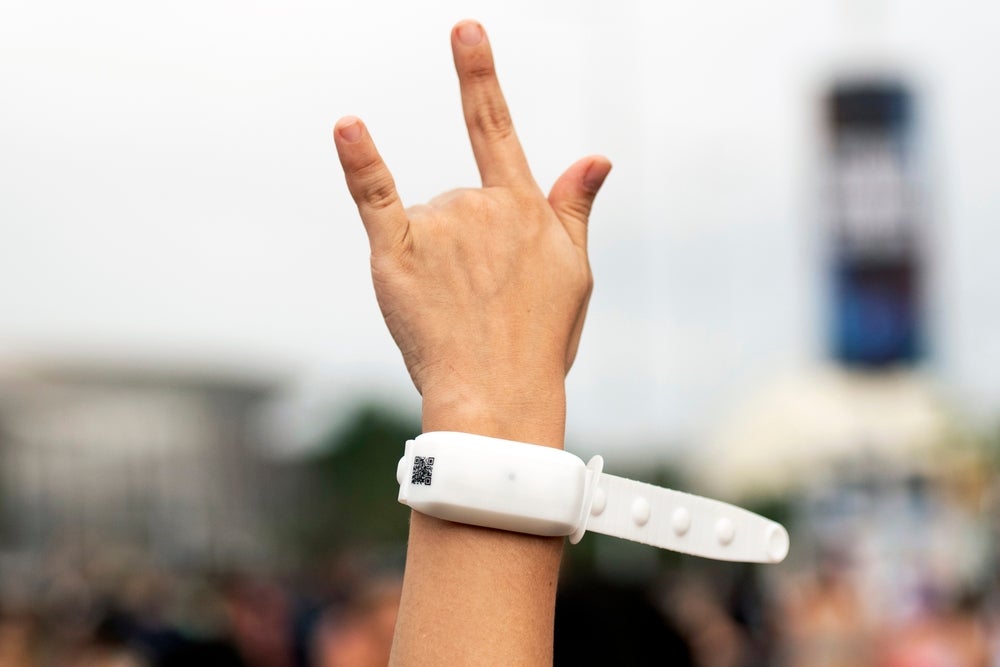In 2019, the band Coldplay released a statement saying that they would not go on another world tour until it could do so in an environmentally beneficial way.
The band’s next tour would be the Music of the Spheres tour, beginning in March of 2022 and set to conclude in summer 2025 in London. The announcement of the tour was accompanied by emissions targets and sustainability strategies. Coldplay wanted to lower carbon emissions by 50% compared to its previous world tour. The overarching sustainability initiative had three principles: reduce, reinvent, and restore.
Coldplay aim to reduce consumption
Coldplay wanted to reduce consumption in comparison to its tour in 2016/17. This included increased recycling and reductions in carbon emissions. Initial reports after the first year of touring said that Coldplay had reduced tour waste from landfills by 72% as of June 2024.
One project focused on LED wristbands, which have become a staple of stadium shows. Traditionally, wristbands light up and are programmed with cues based on the setlist. As part of its sustainability goals, Coldplay handed out reusable wristbands for the show. The bands are made of 100% compostable materials, so even if fans did not return them, they would not be added to a landfill. Wristband production for Coldplay shows has been reduced by 80%, with fans returning the bands so they can be sterilized and recharged for the next show.
World tours mean increased travel. The Tyndall Centre for Climate Research estimates that live concerts in the UK emit 405,000 tonnes of greenhouse gases. The same report suggests that 9% of these emissions are from band travel, and 33% are due to fan travel.
To combat this, Coldplay has invested in using sustainable aviation fuels where airplane transport is required and frontman Chris Martin has been taking public transport where he can. Alongside this, a fan app is encouraging low-carbon travel options with rewards and discounts for fan’s travel. It has been downloaded more than 350,000 times.

US Tariffs are shifting - will you react or anticipate?
Don’t let policy changes catch you off guard. Stay proactive with real-time data and expert analysis.
By GlobalDataReinventing tours
The band aims to support new green technologies and reinvent concert tours. One of the most innovative green technologies is the kinetic dance floor. As audiences jump and dance, the floor generates electricity. The kinetic energy—combined with solar panels, rechargeable batteries, and static bikes—has been able to almost power entire shows.
The kinetic dance floors have been created specifically for the Music of the Spheres tour by Energy Floors. The tiles are durable and portable. Energy Floors has designed a 44-tile dance floor, assembled in a circle for fans to dance on and create energy. They are made of recycled plastics and are durable enough for a four-year-long tour. This tour will also collect data on energy production. Fans can use this data to see which show was the most energetic, while but can be used to scale for future touring musicians.
Trees for tickets
Finally, Coldplay aim to restore environmental damage. This primarily focuses on partnerships like planting trees for every ticket sold, which is currently more than 9 million halfway through the tour. A portion of the tour earnings are also donated to organizations like ClientEarth and The Ocean Cleanup. The Ocean Cleanup partnership also extends into the minimization of single use plastics across the tour.
Sustainable food sourcing has also been a priority with the band prioritizing plant-based, locally sourced, and sustainably produced food for crew catering. Excess food is then donated to local food banks or composted where needed.
Coldplay emission reduction results
In June 2024, Coldplay reported that after two years on the road, the band had reduced its emissions compared to the previous tour by 59%, on a show-by-show comparison.
Some 18 shows were powered entirely by the touring battery system, which is developed in partnership with BMW from recycled batteries. Coldplay’s ongoing tour demonstrates the steps that musicians can make for the better in actively reducing the multitude of emissions that come with concert touring.
The innovations like the kinetic dancefloor can be replicated across other concert tours, but could also have other uses like in sports stadiums to help the sports sector power stadiums.








